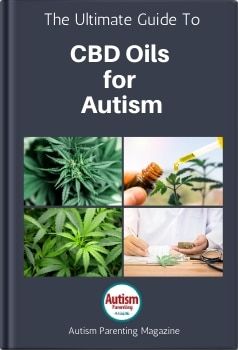
Autism, a complex developmental disorder, affects millions of individuals worldwide. It is characterized by difficulties in social interaction, communication challenges, and repetitive behaviors. While the exact causes of autism are still unknown, researchers continue to explore various treatment options to improve the quality of life for those affected. One such potential avenue is the use of CBD, or cannabidiol, a non-psychoactive compound found in the cannabis plant.
The Science Behind CBD
CBD is one of the many compounds found in cannabis, known as cannabinoids. Unlike its well-known counterpart, THC (tetrahydrocannabinol), CBD does not produce a psychoactive effect, meaning it does not make users feel “high.” CBD interacts with the body’s endocannabinoid system, a complex network of receptors involved in regulating various physiological processes, including mood, sleep, pain, and immune response.
Research suggests that CBD may have potential therapeutic benefits for a range of conditions, including epilepsy, anxiety, and chronic pain. It is believed that CBD’s interaction with the endocannabinoid system may help regulate these imbalances, offering relief to individuals with certain health conditions.
Promising Studies on CBD and Autism
A growing body of research suggests that CBD may also hold promise in treating symptoms associated with autism. While most studies in this field are still in the early stages, initial findings are encouraging.
In a 2019 study published in the journal “Frontiers in Pharmacology,” researchers investigated the effects of CBD on behavioral symptoms in autistic children. The study reported that CBD treatment resulted in a significant improvement in behavior, anxiety levels, and communication difficulties compared to the placebo group. However, researchers cautioned that further research is needed to better understand CBD’s impact on autism.
Another study published in “Neurology” in 2018 explored the effects of CBD on seizures in individuals with autism spectrum disorder (ASD) and severe epilepsy. The study found that CBD treatment reduced seizure frequency in 89% of participants, with 55% experiencing a significant reduction. These findings indicate that CBD may have a potential role in managing seizures associated with autism.
The Potential Mechanisms of Action
While the specific mechanisms underlying CBD’s potential effects on autism are still not fully understood, several theories have been proposed.
One hypothesis suggests that CBD’s ability to interact with the endocannabinoid system may help regulate neurotransmitter levels and reduce anxiety in individuals with autism. Anxiety is a common symptom experienced by many autistic individuals, and CBD’s anxiolytic properties may provide relief.
Additionally, CBD’s anti-inflammatory and neuroprotective properties may play a role in its potential benefits for autism. Chronic inflammation and oxidative stress have been linked to the development and progression of autism. CBD’s ability to reduce inflammation and protect neural cells may contribute to improved symptoms and overall well-being.
Considerations and Future Directions
While CBD shows promise as a potential treatment for autism, it is important to approach this topic with caution. The research in this area is still limited, and more studies are needed to fully understand CBD’s effects and safety profile.
It is crucial to consult with medical professionals before considering CBD as a treatment option for autism or any other condition. They can provide personalized advice, take into account any potential drug interactions, and help monitor for potential side effects.
Furthermore, it is essential to remember that CBD products are not regulated by the FDA, and quality can vary. When purchasing CBD products, it is advisable to choose reputable brands that undergo third-party testing to ensure potency and purity.
As research continues to shed light on the potential benefits of CBD for autism, it is an exciting time for individuals and families affected by this disorder. While CBD should not be considered a cure for autism, it may offer hope in managing symptoms and improving the overall well-being of those living with autism.
In Conclusion
The use of CBD for autism is an area of ongoing research, with promising initial findings. CBD’s interaction with the endocannabinoid system and potential therapeutic properties make it an intriguing avenue for managing symptoms associated with autism. However, more rigorous studies are needed to fully understand CBD’s effects, dosage guidelines, and long-term safety profile. Consulting with medical professionals and using reputable, quality-tested CBD products is essential when considering CBD as a potential treatment option for autism.

